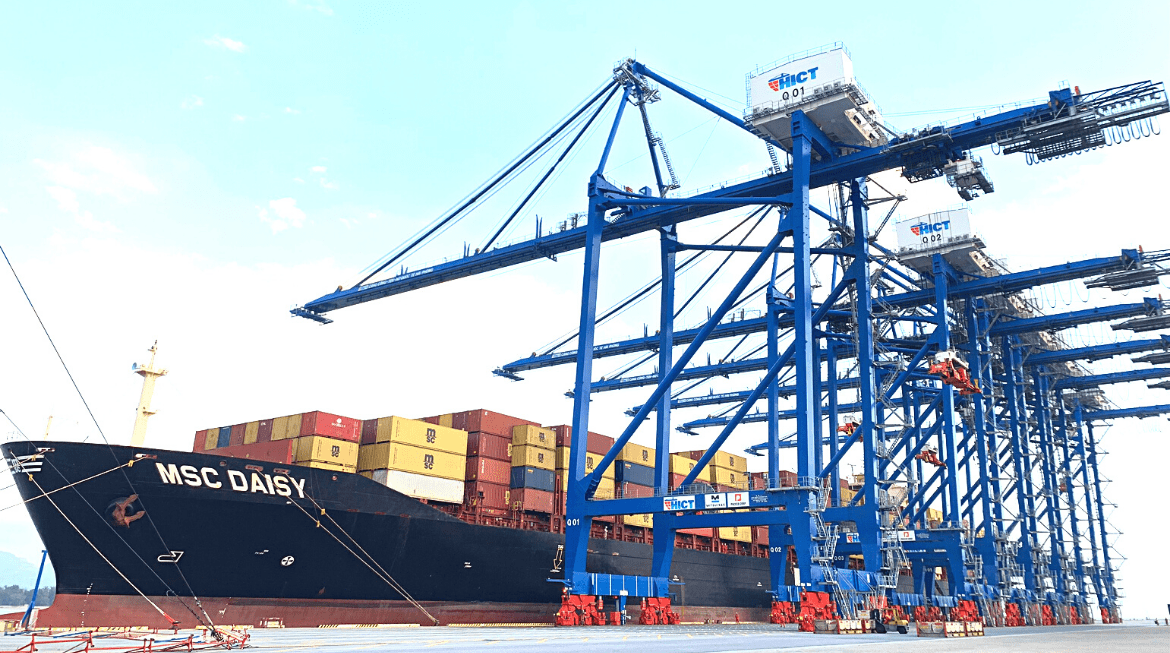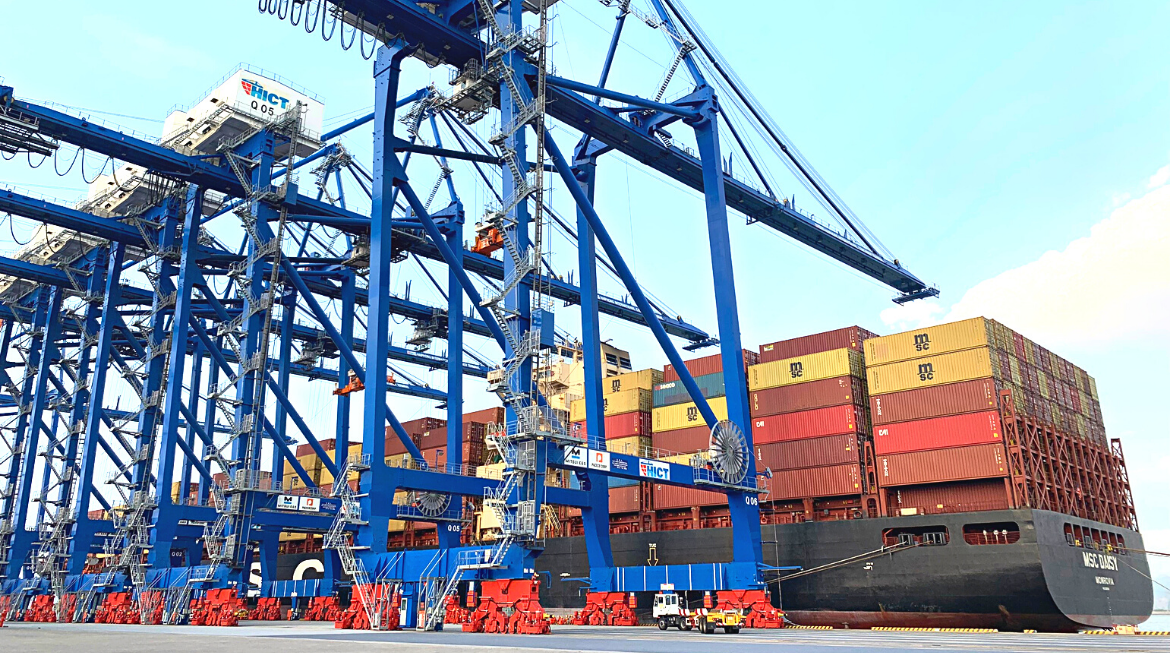
Tan Cang - Hai Phong International Container Terminal (TC-HICT) receives the largest ship ever
29/01/2022

On the afternoon of January 28, 2022, Tan Cang Hai Phong International Container Terminal (TC-HICT) welcomed the ship M/V MSC DAISY, which brought a record-breaking volume to the berth so far.
The total handling capacity of the ship alone in this visit is 7,368 TEU, of which 3,850 TEU is Teu imported into Vietnam and more than 3,518 TEU is Teu exported.
The ship M/V MSC DAISY has a capacity of 67,601 DWT, LOA of 294m, belonging to the new Santana service route connecting directly with the US East Coast with the route Hai Phong - Shanghai - Ningbo - Charleston - New York - Hai Phong. With TC-HICT, this is the record for the highest single-loading volume of an international vessel ever docked at the port.

The ship MSC DAISY belongs to the world's second largest shipping line - MSC (Mediterranean Shipping Company). The line was founded in 1970, and controlled for over 40 years by the Aponte family, MSC has grown from one vessel to its current fleet of 642 vessels with a capacity of 4,276,918 TEUs. The shipping line MSC reports today it calls at 500 ports on more than 230 shipping routes and handles more than 23 million TEUs annually. One of the factors that has helped MSC accelerate its growth in recent years is the use of chartered vessels and less owned fleets. Currently, MSC owns only 259 vessels with a capacity of more than 1.5 million TEU, with nearly two-thirds of the capacity coming from mainly long-term charter vessels.

With the best operational productivity and commitment to continuously improve service quality, TC-HICT Port is a reliable destination and top priority for MSC in the Northern region.
TC-HICT is an important link in the supply chain in the North, while the volume of import and export goods in the North is increasing rapidly, when goods are loaded onto mother ships of the same size. Connecting businesses of the region to major markets such as Europe and the US without transshipment through transshipment ports such as Singapore, Malaysia, etc., helps save logistics costs, increase competitiveness, and reduce time transportation from which goods can soon access the market.
(SNP)

The ship MSC DAISY belongs to the world's second largest shipping line - MSC (Mediterranean Shipping Company). The line was founded in 1970, and controlled for over 40 years by the Aponte family, MSC has grown from one vessel to its current fleet of 642 vessels with a capacity of 4,276,918 TEUs. The shipping line MSC reports today it calls at 500 ports on more than 230 shipping routes and handles more than 23 million TEUs annually. One of the factors that has helped MSC accelerate its growth in recent years is the use of chartered vessels and less owned fleets. Currently, MSC owns only 259 vessels with a capacity of more than 1.5 million TEU, with nearly two-thirds of the capacity coming from mainly long-term charter vessels.

With the best operational productivity and commitment to continuously improve service quality, TC-HICT Port is a reliable destination and top priority for MSC in the Northern region.
TC-HICT is an important link in the supply chain in the North, while the volume of import and export goods in the North is increasing rapidly, when goods are loaded onto mother ships of the same size. Connecting businesses of the region to major markets such as Europe and the US without transshipment through transshipment ports such as Singapore, Malaysia, etc., helps save logistics costs, increase competitiveness, and reduce time transportation from which goods can soon access the market.
(SNP)